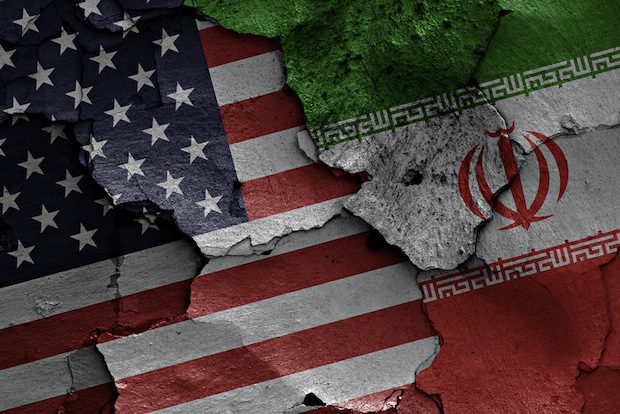The U.S. Doesn’t Need a More Aggressive Iran Policy

Unsurprisingly, Mark Dubowitz has some terrible recommendations for Iran policy:
In the early 1980s, President Reagan shifted away from his predecessors’ containment strategy toward a new plan of rolling back Soviet expansionism. The cornerstone of his strategy was the recognition that the Soviet Union was an aggressive and revolutionary yet internally fragile regime that had to be defeated.
Reagan’s policy was outlined in 1983 in National Security Decision Directive 75, a comprehensive strategy that called for the use of all instruments of American overt and covert power. The plan included a massive defense buildup, economic warfare, support for anti-Soviet proxy forces and dissidents, and an all-out offensive against the regime’s ideological legitimacy.
Mr. Trump should call for a new version of NSDD-75 and go on offense against the Iranian regime.
Whatever merits Reagan’s policies may have had three decades ago in dealing with the Soviet threat, they are a poor model for dealing with a weaker regime that poses little or no threat to the U.S. and our genuine treaty allies. The stale invocation of Reagan is the first clue that the case for a more aggressive Iran policy is weak. Not all of Reagan’s policies were wise, some were unsuccessful, and others were flat-out wrong, but they were responses to a world that hasn’t existed in almost thirty years and offer little guidance about what our policy towards Iran should be in the twenty-first century.
There is no need for a more aggressive policy towards Iran. Hawks often talk about Iranian “expansionism” as if it were a real and growing problem, but there is no expansionism worth mentioning. Iran has proxies in some countries in the region, and has had them for many years, but they aren’t acquiring new ones. Iran has one government in the region closely aligned with it in Syria, and it has spent the last few years trying to keep it from being overthrown. That is not “expansion.” It can at best be described as trying to hang on to what influence it already had at considerable cost. This isn’t threatening the U.S. The U.S. won’t be made more secure by wasting time and resources trying to “systemically dismantle Iranian power country by country.” On the contrary, this will mean more U.S. commitments, new wars, and increased costs and no benefits for America. Iran’s regional rivals would no doubt be happy for the U.S. to assume the burdens of doing this, but that is a lousy reason for the U.S. to go along with it.
Dubowitz also calls for trying to subvert the Iranian government from inside Iran:
Last but not least, the American pressure campaign should seek to undermine Iran’s rulers by strengthening the pro-democracy forces that erupted in Iran in 2009, nearly toppling the regime.
This is wrong on many counts. The protests in 2009-10 didn’t “nearly” topple the regime, the protesters weren’t seeking to topple it, and most of them didn’t want U.S. support in any case. Nothing would be worse for the Iranian opposition than to have the U.S. meddling in their country’s politics in an attempt to bring down their government. If “the gap between the ruled and their Islamist rulers is expanding,” few things could close it more quickly than U.S. interference. The best way to achieve a change in government in Iran is to leave that task to the Iranian people and to refrain from offering them the toxic “help” we have extended to other countries in that part of the world and elsewhere.
Comments